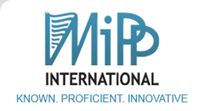Krass M.S. Ecological and economic aspects of natural technology use of water desalting
Maxim Semenovich Krass
Doctor of Physical and Mathematical Sciences, Professor, Expert, Russian Expert Fund “Tekhehko”
Prechistenka St., 10, bild. 3, 119034 Moscow, Russian Federation
Abstract. At the moment of the anthropogenic pollution when deep ground water carrying layers are reached the search of potential sources and technologies of the sweet water production have become important. At the modern stage of the development of the economy of Russia the question about the assessment of natural resources and the question about the inclusion of these indices into the system of parameters of the national welfare arise. This assessment reflecting the natural potential will determine the development of the country for the nearest period of time. In the article the main ecological problems of Russia are defined, the problems of the water basin of southern regions are formulated, the possible variants of their solution are studied, the forms of the necessary institutional support are shown. The author pays a special attention to the problem of the growing global deficit of sweet water, the world need of which is expected to be 100 m3 per year. The theoretical model for the obtaining sweet water in industrial scale is suggested. The technological implementation in the form of the natural phenomenon of fresh and salted laminated lakes of Antarctic oases with the reproduction of boundary conditions of the natural regime of water desalting state is offered. As the fundamentals of the basic technology of water desalting and sweet water obtaining in industrial scale the use of the natural phenomenon of sweet and salted laminated lakes of Antarctic is suggested.
Key words: ecology, sweet water, deficit, sweet and salted lakes of oases, water desalination, natural regime of water desalination, standard, technology.
Attachments: /Krass.pdf







